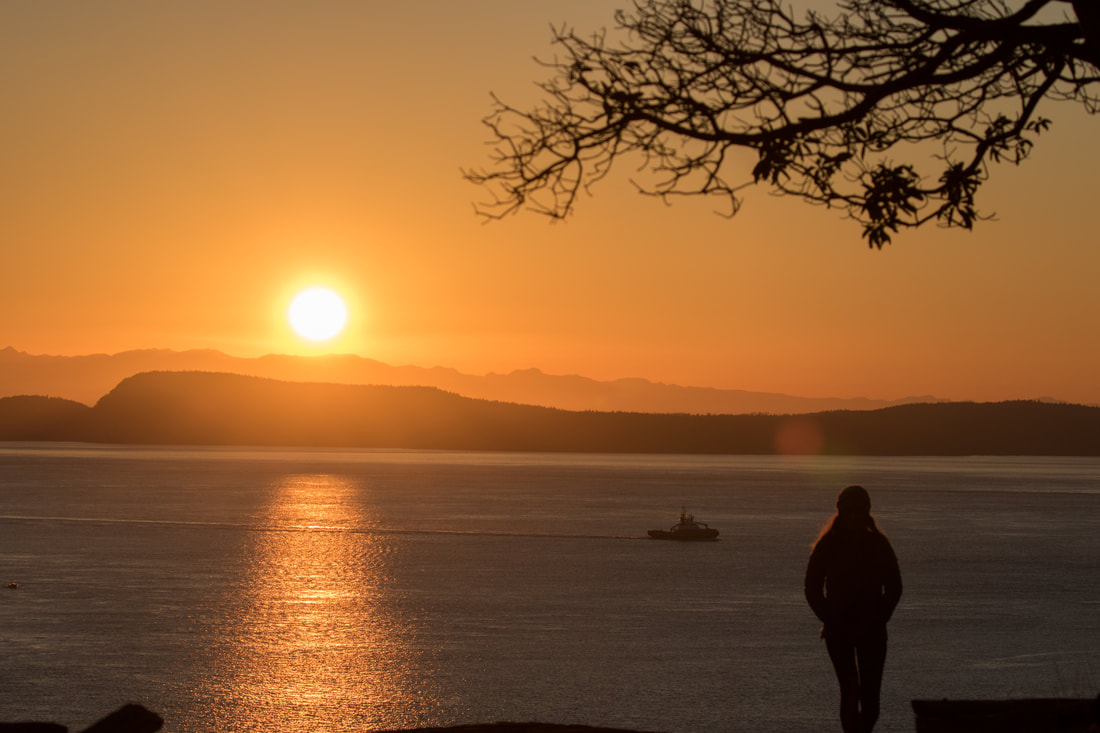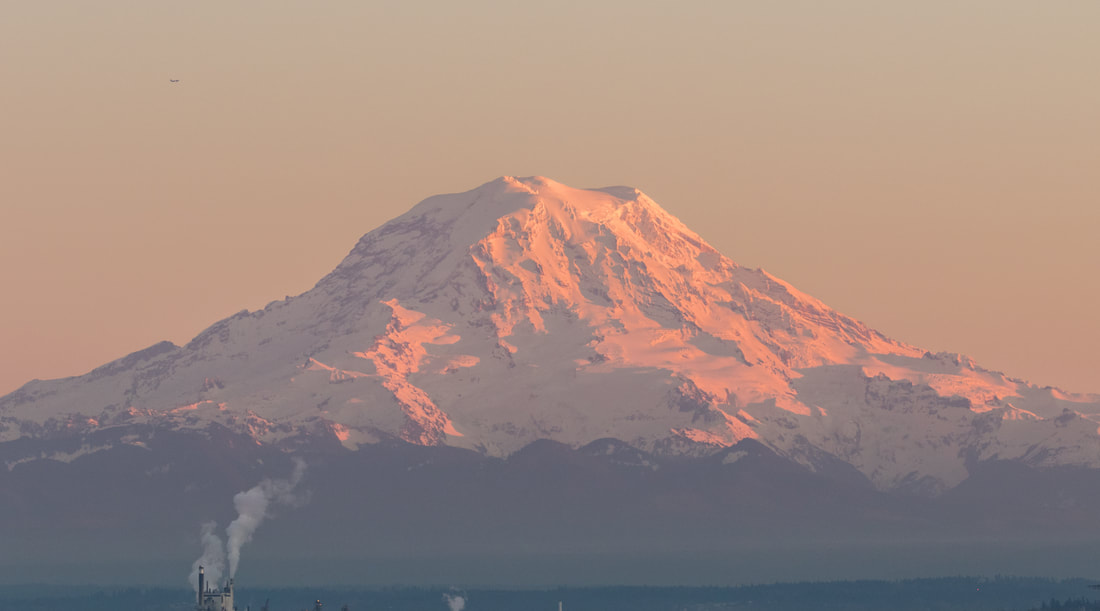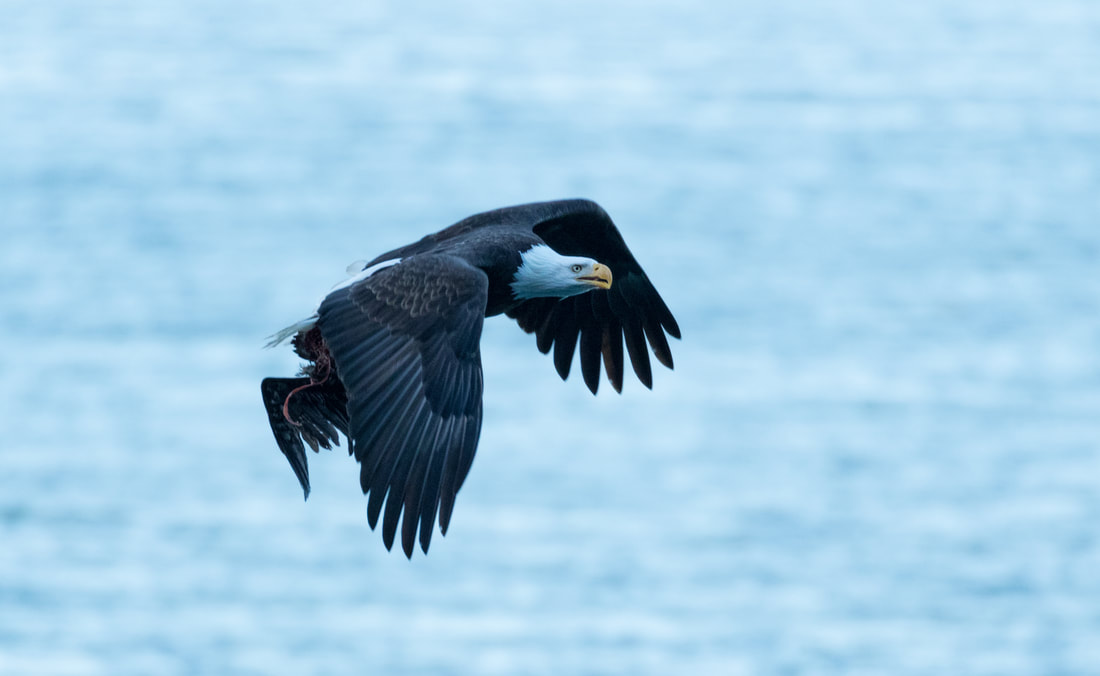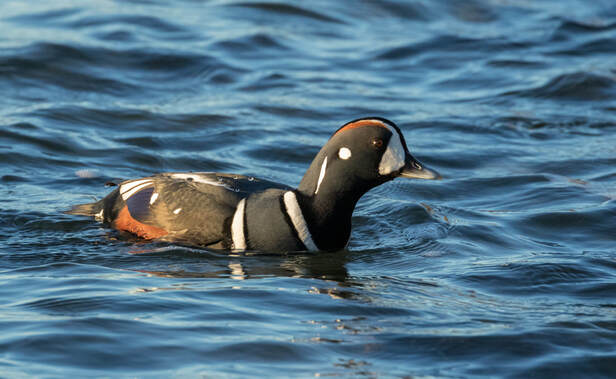|
Our second night on the road was spent in Gillette, Wyoming: “the perfect stopover on I-90” according to one of their marketing campaigns. We pulled in a little after dark, and as we approached the front entrance to our hotel, we were mildly surprised to see that it was actually attached to another hotel sporting a giant waterslide snaking out the front of the building. The slide was fully enclosed, so no risk of hypothermia for the brave watersport enthusiasts, but it all seemed just a bit out of place. At least it did to me; Tara was bemoaning the fact that her bathing suit was somewhere at the bottom of the car. We walked past the giant plastic chute, checked in to our room, and then headed to the local convenience store (AKA Walmart) for some dinner supplies. We grabbed a nice-looking prepared salad and some microwavable dinners, and after self-checking out, we grabbed our few food items and headed towards the door with our dinner in our arms. As we neared the exit, the greeter called us over, saying (in somewhat less friendly tones than she had used when welcoming us a few minutes prior)- “No bags?” “No, we don’t need any for just a few items,” we responded. “Come on guys, I’m going to need to look at your receipt. When you don’t have bags, it just looks suspicious.” Tara was miffed, and wanted the woman to understand that we were simply trying to cut down on plastic consumption (especially having just purchased microwaveable meals...), but I was just tired, and had no appetite for educating the purported greeter/shoplift-foiler about the broader implications of plastic bag use at that moment. We left the woman, and the gaping cultural divide, behind us and returned to our hotel room to enjoy our unpackaged meal in comfort. The next morning, we were again up before light, this time on the road towards Missoula, Montana. The day passed easily, accented by occasional groups of pronghorns dotting the hills alongside the highway. These animals (formerly known as pronghorn antelope because of their resemblance to Old World antelopes) are the second fastest land animals on the planet, capable of running 55 mph for extended periods of time. There are no predators that come close to that velocity in North America, so why bother having all that extra speed? The answer is thought to lie in the past; pronghorns shared the American prairies with a suite of now extinct predators, including what’s been called the American cheetah (closely related to the mountain lion, but supposedly capable of cheetah-like speeds), and a hyena, which may have been a long-distance runner like some of its African relatives. So the pronghorn’s speed and endurance are possible holdovers from an age when it had a very different predator guild to contend with. Some call this phenomenon “the ghost of selection past” (which is really an adaptation of Connell’s “ghost of competition past” idea). The closer we got to Missoula, the more majestic the scenery became. We pulled in to our friend Maria’s driveway around dusk, and spent the evening at a trendy local restaurant. The next morning we joined our host for her morning walk with Ollie, her amiable four-legged housemate, and I rapidly lost sensation in my extremities as the heat was drawn from my hands and feet by the 13 degree Fahrenheit temps. But we did hear a (fool)hearty American dipper singing from the partly frozen river coursing through the small park, and that made up for any pain in my body. We returned to the house, grabbed a quick bite at a local coffee shop, and were on the road again. That day was our last big leg; 8 hours of drive time with an evening destination of Vashon Island in Puget Sound, where we would spend the night with my cousins Gabe and Christina, and their three kids. We hit a few pockets of low clouds/fog along the way, and joined what felt like a luge run shooting down the western side of the Cascades with all our fellow motorists seemingly abandoning their brake pedals. We made excellent time and caught the sunset ferry across to Vashon. As the boat pulled away from the dock, we were afforded stunning views of Mt. Rainier, complete with alpenglow on its snow-covered slopes (see image above). Not a bad welcome from the Pacific Northwest.  The setting sun from an overlook at Washington Park, Fidalgo Island, Washington. The setting sun from an overlook at Washington Park, Fidalgo Island, Washington. We arrived on Vashon Island after the 10 min ferry ride, and drove a short distance to my cousins’ house nestled in the deepening shadows of the cedars and hemlocks. Tara and I thrilled at the lush surroundings, the hunter greens of the conifers, mosses and ferns. Not for the first time, we contemplated asking Gabe and Christina if they would perhaps consider adopting us. We went inside the house, with its beautiful post and beam design and open layout, and were welcomed in with a feast. Dungeness crab roll appetizers, hand-made pizzas, steamed mussels, and a fresh salad. After luxuriating around the dinner table, Gabe suggested a night hike, so we ventured off into the woods to explore by moonlight. The waxing half-moon was high in the sky, and cast so much light that we only needed to turn the flashlight on a few times to navigate tricky portions of the path. We walked to a small meadow and paused, craning our heads back to take in the moon and the constellations, all of which popped in the crisp air. I could make out details of the plants around us, the individual stems of grasses, and marveled at how much light the moon was reflecting down to us. After a few minutes of this, we turned around and made our way back to the house for the night. The following morning we lounged over breakfast and made plans for birding our way to Vancouver Island over the next two days. We hopped the late morning ferry at the north end of Vashon, and upon hitting the mainland, turned north to head up the coast. We exited the 5 for Anacortes, and pulled in to Skagit’s Own Fish Market to share an exquisite crab roll and prawn taco for lunch. Christina had recommended the crab roll the previous night, and we were not disappointed. With full bellies and thoroughly satisfied taste buds, we were ready to do some birding. We drove the short distance to Rosario Beach and got out to wander the small coastal grounds. We spied harlequin ducks, horned and western grebes, common loons, pelagic and double-crested cormorants, black oystercatchers, and a handful of other water and terrestrial birds. The park was stunning, but the experience was tempered slightly by the overbearing acoustic presence of fighter jets and P-3 Orions performing maneuvers a little distance away. We packed ourselves back into our car and headed to Washington Park, located at the eastern end of Fidalgo Island. We walked the loop road, which hugged the coast for most of its length, and stopped to watch the erratic activities of chestnut-backed chickadees and golden-crowned kinglets that decorated the vegetation like animated Christmas-tree ornaments. A bald eagle materialized through the branches, clutching an old duck or gull carcass in its talons. It landed nearby, looking around to see if any potential thieves had noticed it, but unhappy with its perch, it soon launched back into the air and disappeared around a corner. I happened upon a local bath-house of sorts; a shallow puddle in a pebbled opening where golden-crowned kinglets, chickadees, juncos and song sparrows were taking turns wading in, and vigorously shaking themselves in the clear water. Tara called me away from the bathers to see a trio of harlequin ducks foraging close to the rocks along the shoreline. I made my way down to the water’s edge and set-up with my camera to see if I could get lucky with the lighting. Just as two of the birds began exploring an area with optimal golden light, two border-patrol agents walked down and paused nearby, looking out over the water and discussing matters of national security. The ducks seemed slightly agitated (they had almost certainly made their way there from Canada, after all) and quickly moved along, although I was able to get a few shots off (image below). We continued walking and arrived at an overlook just as the sun began easing itself down into the hills to the west (image above). Once the sun disappeared, the thermostat dropped rapidly, and we quickened our pace in an attempt to outrun the cold. We got to the car with a few minutes of light to spare, and drove the 5 minutes to Christina’s parent’s house where we spent an enjoyable evening eating, drinking wine, and chatting about birds, Florida, and politics. The next day would be our last of travel; or would it? Our border-crossing experience did not go quite as planned. Next post: Crossing the border, birding the Reifel Bird Sanctuary, and arriving at our new home.
0 Comments
Leave a Reply. |
About the author:Loren grew up in the wilds of Boston, Massachusetts, and honed his natural history skills in the urban backyard. He attended Cornell University for his undergraduate degree in Natural Resources, and received his PhD in Ecology from the University of California, Santa Barbara. He has traveled extensively, and in the past few years has developed an affliction for wildlife photography. Archives:
|



